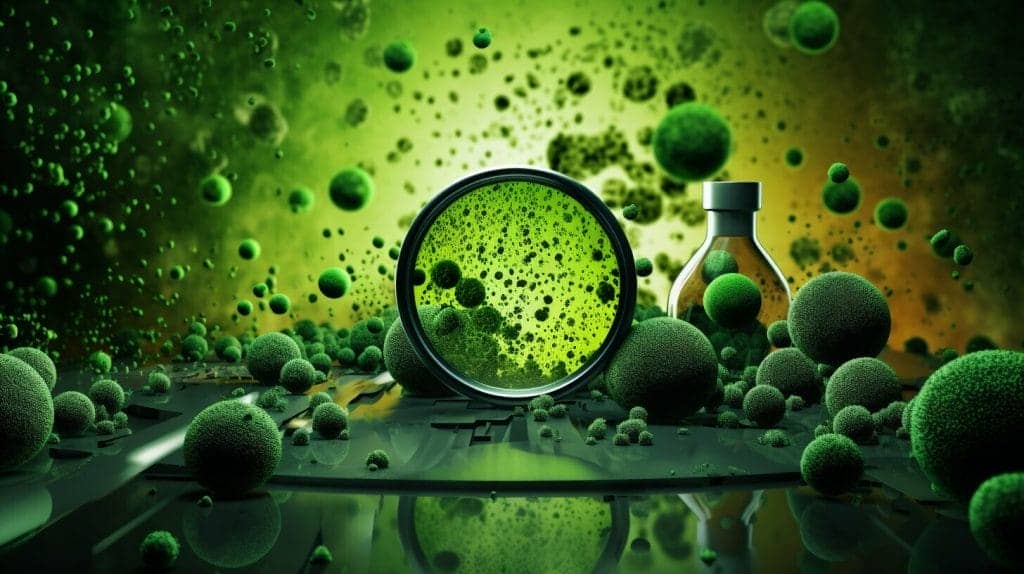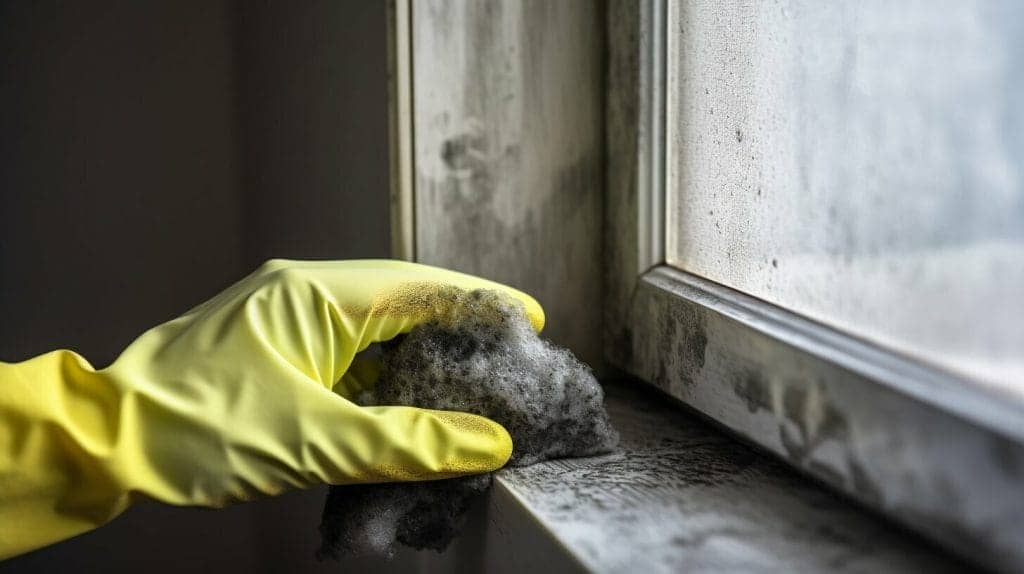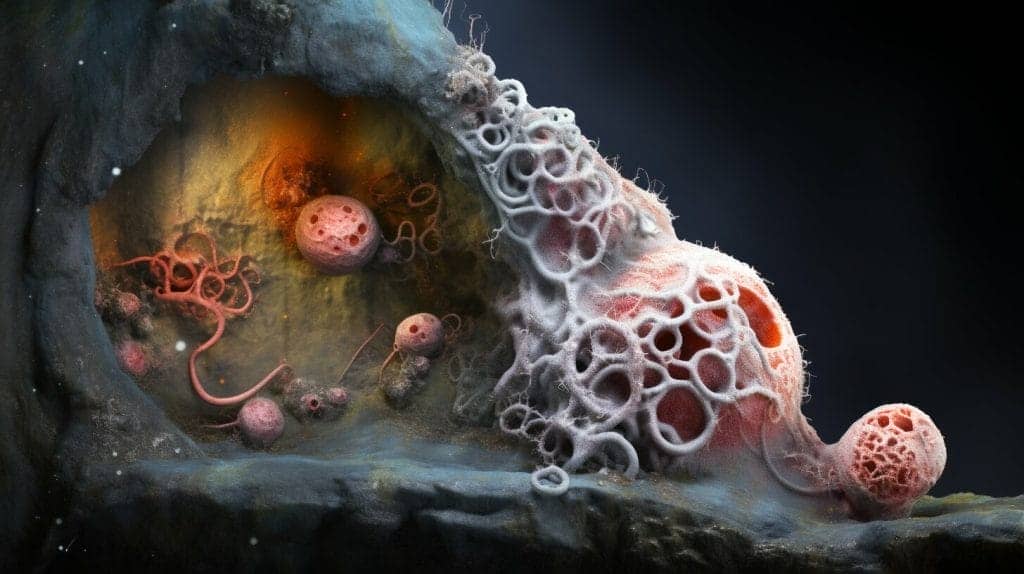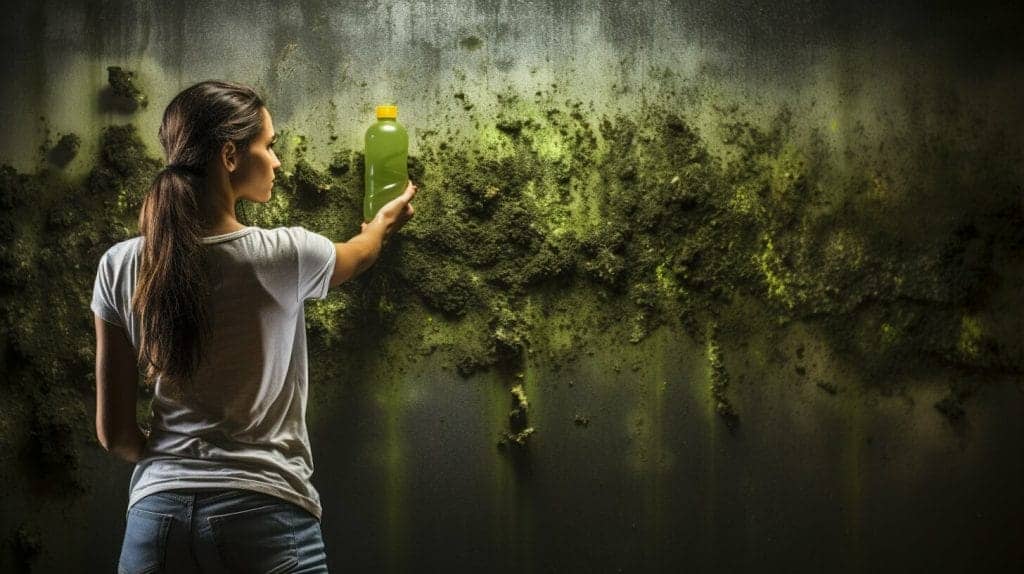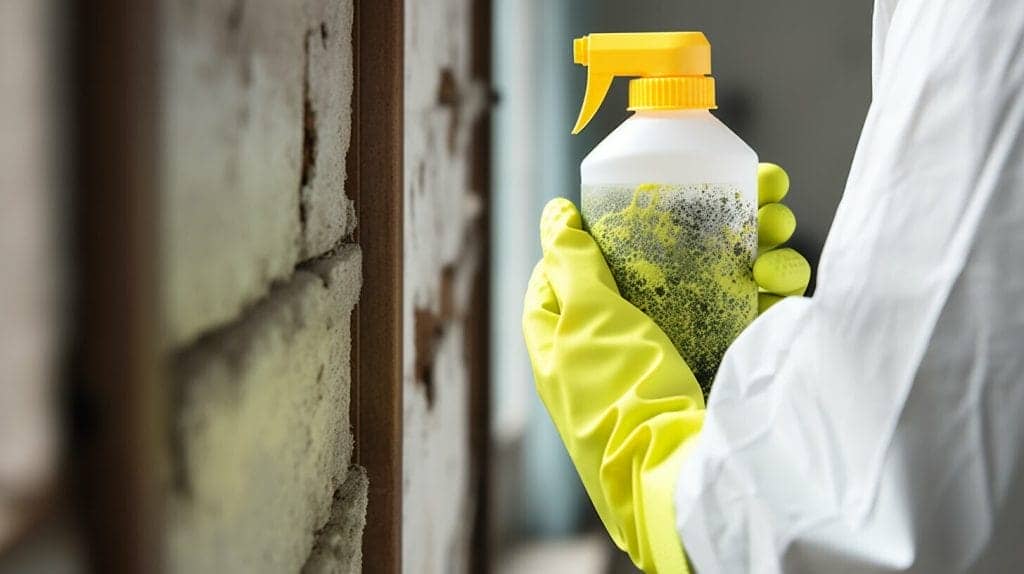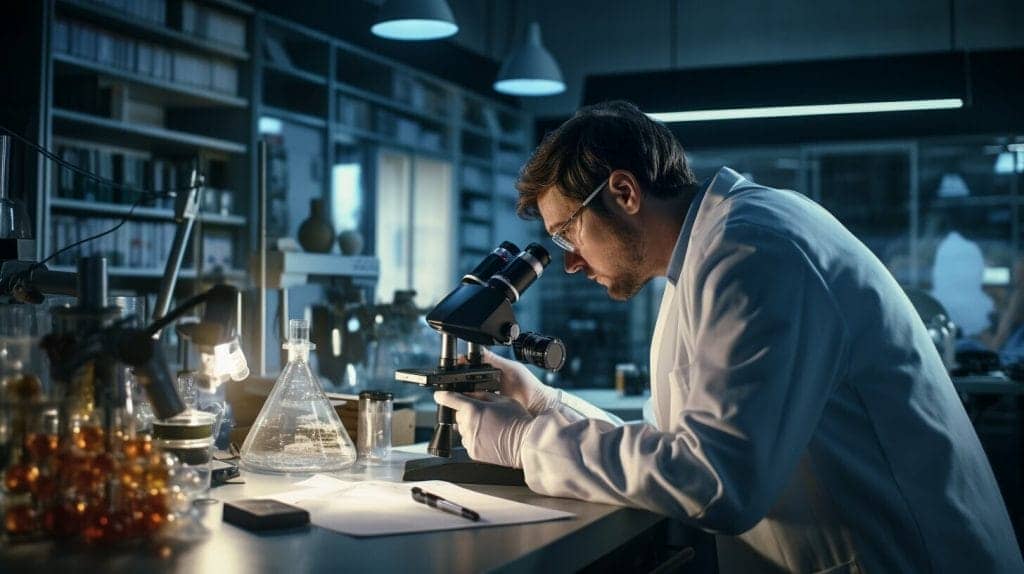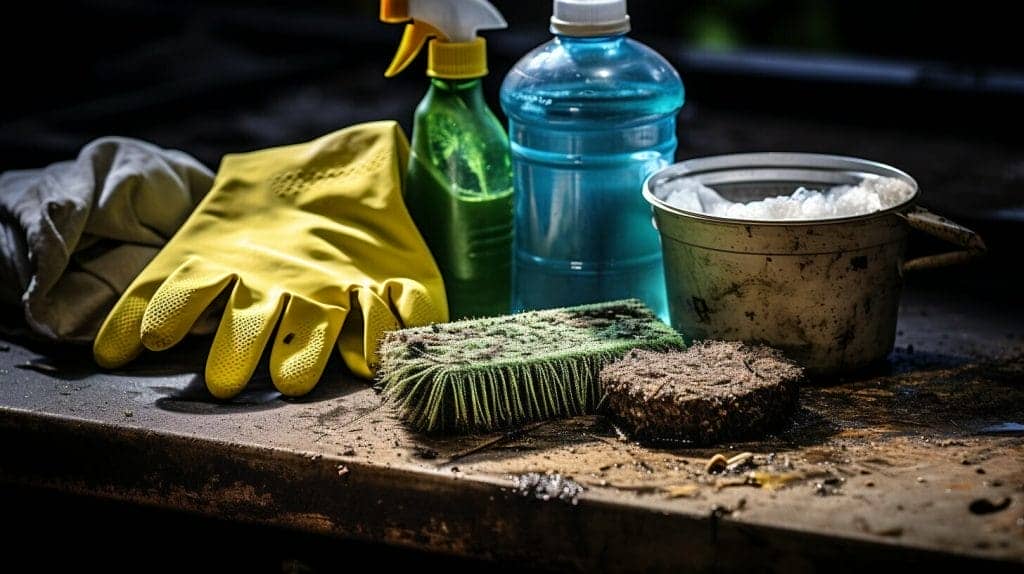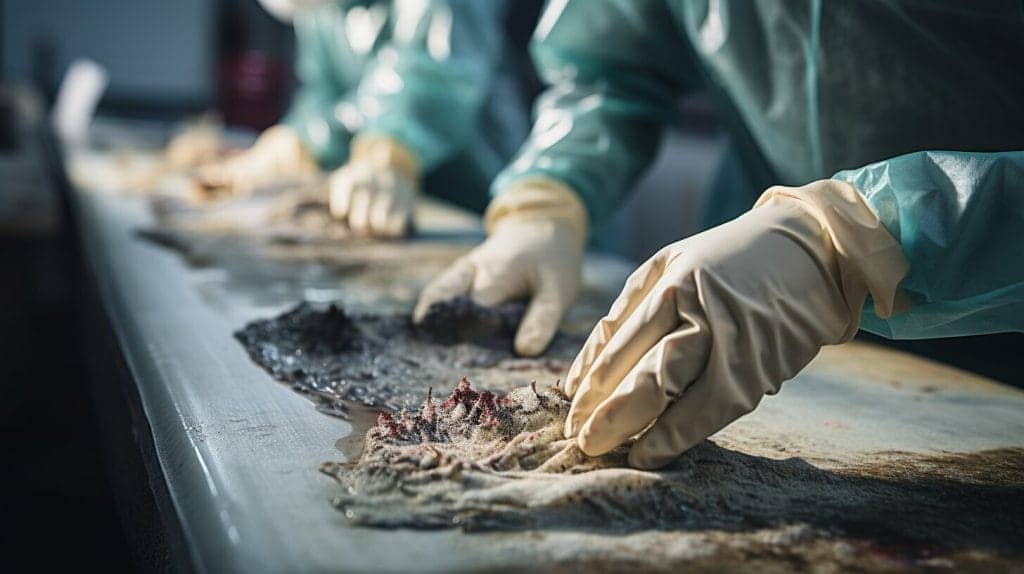Mold toxicity is a growing concern for individuals and families across the United States. Exposure to mold can lead to a range of health problems, from respiratory issues to neurological symptoms, and can exacerbate existing conditions such as asthma and allergies. However, the molecular biology behind mold toxicity is often overlooked or misunderstood, leaving many people unaware of the hidden dangers lurking in their homes and workplaces.
Understanding the molecular biology of mold toxicity is crucial for identifying potential health risks and developing effective prevention and treatment strategies. In this article, we will explore the molecular mechanisms behind mold toxicity, the common symptoms experienced by individuals affected by mold exposure, and the importance of holistic approaches to treatment. We will also highlight the work being done at Oasis Medical Institute to address mold toxicity and promote holistic healing.
Key Takeaways:
- Mold toxicity can have a range of adverse health effects, from respiratory issues to skin problems and neurological symptoms.
- Understanding the molecular biology of mold toxicity is vital for identifying potential health risks and developing effective prevention and treatment strategies.
- Holistic approaches to mold toxicity treatment can complement traditional medical treatments and improve outcomes for patients.
The Hidden Dangers of Mold Exposure
Mold is a type of fungus that can grow in damp environments. While it is not always visible, mold can release spores that can have harmful effects on human health. Prolonged exposure to mold can lead to a range of health problems, including respiratory issues, skin problems, and neurological symptoms.
The effects of mold on health vary from person to person. Some individuals may experience only mild symptoms, while others may develop more severe illnesses. It is important to note that mold-related illnesses can be difficult to diagnose, as symptoms can often mimic those of other conditions.
Studies have shown that exposure to mold can also exacerbate pre-existing conditions such as asthma and allergies. Individuals with weakened immune systems, such as the elderly and those undergoing chemotherapy, may be more susceptible to the harmful effects of mold exposure.
To minimize the risk of mold-related illnesses, it is important to address any moisture issues in the home. This can involve fixing leaky pipes, properly ventilating bathrooms and kitchens, and using dehumidifiers in damp areas.
If you suspect that you have been exposed to mold and are experiencing symptoms such as coughing, wheezing, or skin rashes, it is important to seek medical attention. Your healthcare provider may refer you to a specialist or conduct tests to determine if mold exposure is the cause of your symptoms.
In the next section, we will explore the molecular mechanisms behind mold toxicity in more detail, highlighting the importance of understanding these mechanisms in developing effective prevention and treatment strategies for mold-related illnesses.
Understanding the Molecular Mechanisms of Mold Toxicity
Mold exposure can have serious health consequences, but it is the molecular mechanisms of mold toxicity that can help us understand the hidden dangers more deeply. Molds produce toxins that can have a range of adverse effects on the human body, including respiratory symptoms, neurological issues, and skin problems.
Scientists and researchers continue to study mold toxicity to better understand these molecular mechanisms. Mold toxicity research has identified specific toxins released by molds that interact with the body at a molecular level, causing inflammation, cell damage, and other adverse reactions. The aim of this research is to develop effective prevention and treatment strategies for mold toxicity.
| Molecular Mechanism | Impact on Health |
|---|---|
| Myocotoxins | Can lead to respiratory problems, neurological symptoms, and skin disorders. |
| Endotoxins | Can trigger asthma and allergy symptoms, as well as other respiratory issues. |
| Glucans | Can cause respiratory inflammation and lower respiratory tract symptoms. |
The study of the molecular mechanisms of mold toxicity is crucial in raising awareness of the hidden dangers of mold exposure. By understanding the specific ways in which molds release toxins and how these toxins interact with the body at a molecular level, we can better understand the severity of mold-related illnesses and develop more effective prevention and treatment strategies.
Common Symptoms of Mold Toxicity
Mold exposure can cause a range of symptoms that can vary depending on the type of mold, the duration of exposure, and an individual’s health status. Some of the common symptoms of mold toxicity include:
| Respiratory symptoms: | Coughing, wheezing, shortness of breath, chest tightness, nasal congestion, sinusitis, and sore throat. |
|---|---|
| Neurological symptoms: | Headaches, dizziness, confusion, memory loss, anxiety, depression, and trouble concentrating. |
| Skin problems: | Rashes, hives, itching, and redness. |
| Physical symptoms: | Fatigue, weakness, muscle cramps, and joint pain. |
| Eye and ear symptoms: | Eye irritation, watery eyes, and ear infections. |
It is important to note that these symptoms can also be caused by other health issues, so it is crucial to seek medical attention if you experience any of these symptoms.
Mold-Related Diseases: A Closer Look
Mold exposure can cause or exacerbate a range of illnesses and health problems. Here are some of the most common mold-related diseases:
| Disease | Description |
|---|---|
| Asthma | Asthma is a chronic condition that affects the airways, causing wheezing, coughing, and difficulty breathing. Mold exposure can trigger asthma symptoms or make them worse. |
| Allergic Rhinitis | Allergic rhinitis, also known as hay fever, causes symptoms such as sneezing, runny nose, and itchy eyes. Exposure to mold spores can trigger allergic rhinitis in susceptible individuals. |
| Sinusitis | Sinusitis is an infection or inflammation of the sinuses, the air-filled cavities in the skull. Mold can cause or exacerbate sinusitis symptoms in some people. |
| Mycotoxicosis | Mycotoxicosis is a term used to describe poisoning caused by exposure to mycotoxins, which are toxic substances produced by some molds. Symptoms can vary depending on the type and amount of mycotoxin involved, but can include respiratory issues, neurological symptoms, and skin problems. |
| Chronic Fatigue Syndrome | Chronic fatigue syndrome is a complex condition characterized by extreme fatigue that cannot be explained by any underlying medical condition. Some studies have suggested a link between mold exposure and chronic fatigue syndrome. |
The molecular biology of mold toxicity plays a crucial role in the development and progression of these diseases. By understanding the mechanisms involved, researchers and medical professionals can develop more effective prevention, diagnosis, and treatment strategies.
Prevention and Mitigation Strategies
Mold toxicity is a serious health concern that can result in a range of adverse health effects. To minimize exposure to mold and mitigate its impact on health, there are several steps individuals can take to prevent mold growth and reduce exposure to toxins.
Address Moisture Issues
Mold thrives in damp environments, so addressing moisture issues in the home is crucial in preventing mold growth. Fixing leaks, ensuring proper ventilation, and keeping humidity levels at or below 50% can help prevent mold growth.
Clean and Disinfect Regularly
Regular cleaning and disinfecting can help prevent mold growth and reduce exposure to toxins. It’s important to clean and disinfect areas prone to moisture, such as bathrooms and kitchens, as well as any areas where mold has been identified.
Improve Indoor Air Quality
Improving indoor air quality can also help minimize exposure to mold toxins. Using an air purifier with a HEPA filter, opening windows for ventilation, and avoiding the use of harsh chemicals can improve indoor air quality and reduce the risk of mold toxicity.
Seek Professional Guidance
If mold toxicity is suspected, seeking professional guidance is crucial. A mold remediation specialist can identify the source of mold growth, assess the extent of exposure, and recommend appropriate remediation measures. Additionally, a healthcare provider can evaluate any adverse health effects and provide appropriate treatment.
Molecular biology research plays a significant role in understanding mold toxicity and developing effective prevention and treatment strategies. By taking proactive steps to prevent mold growth and reduce exposure to toxins, individuals can protect their health and well-being.
Oasis Medical Institute: Holistic Mold Toxicity Treatment
For individuals seeking a more comprehensive and integrative approach to mold toxicity treatment, Oasis Medical Institute in Tijuana, MX offers a holistic Mold Toxicity treatment program. Under the guidance of Dr. Francisco Contreras MD, patients can benefit from a range of holistic treatments designed to address the molecular biology of mold toxicity.
At Oasis Medical Institute, patients can expect an individualized treatment plan that combines traditional medical treatments with holistic therapies such as acupuncture, massage therapy, and nutritional counseling. The goal is to support the body’s natural healing processes and promote overall health and wellbeing.
The holistic Mold Toxicity treatment program at Oasis Medical Institute has helped many individuals overcome the negative effects of mold exposure and improve their quality of life. Patients have reported experiencing relief from symptoms such as respiratory issues, skin problems, and neurological symptoms.
To learn more about the holistic treatments offered at Oasis Medical Institute and book a consultation for their holistic Mold Toxicity treatment program, call 866-868-1992 today.
Holistic Approach to Mold Toxicity Treatment
At Oasis Medical Institute, a holistic approach to mold toxicity treatment is used. This approach combines traditional medical treatments with complementary and alternative medicine (CAM) therapies to help address the root cause of mold toxicity.
CAM therapies, such as acupuncture, chiropractic care, and massage therapy, help to restore balance and harmony to the body, promoting healing and wellness. These holistic treatments can be used to complement conventional medicine, providing a more comprehensive approach to treatment.
In addition to CAM therapies, lifestyle changes such as dietary modifications and stress management techniques are also emphasized. This integrative approach to mold toxicity treatment allows for a customized treatment program that addresses each individual’s unique needs.
Dr. Francisco Contreras MD, the medical director at Oasis Medical Institute, believes that taking a whole-person approach to treatment is essential for achieving optimal health outcomes. He and his team work closely with patients to develop a mold toxicity treatment plan that considers all aspects of their health and lifestyle.
If you’re experiencing symptoms of mold toxicity or want to take a proactive approach to preventing mold-related illnesses, consider seeking holistic treatment at Oasis Medical Institute. Their integrative approach to mold toxicity treatment may help you find relief and improve your overall well-being.
Dr. Francisco Contreras MD: Leading the Way in Mold Toxicity Treatment
The holistic approach to mold toxicity treatment at Oasis Medical Institute is led by Dr. Francisco Contreras MD, an expert in integrative cancer treatment and alternative medicine. Dr. Contreras has over 30 years of experience in the field and is recognized as a leading authority in holistic medicine.
Dr. Contreras received his medical degree from the National University of Mexico and completed his postgraduate training at the University of Vienna, Austria. He is also board-certified in oncology and has authored several books on alternative medicine and cancer treatment.
At Oasis Medical Institute, Dr. Contreras works closely with patients to design personalized treatment programs that address the underlying molecular biology of mold toxicity. He utilizes a variety of holistic treatments, including IV nutrient therapy, ozone therapy, and hyperbaric oxygen therapy, to support the body’s natural healing processes.
Patients who seek treatment at Oasis Medical Institute benefit from Dr. Contreras’ extensive knowledge and experience in the field of integrative medicine. His commitment to providing holistic care that addresses the root causes of illness has helped many individuals achieve improved health outcomes.
Holistic Treatment Success Stories
At Oasis Medical Institute, individuals dealing with mold toxicity can find relief through a comprehensive and integrative approach to treatment. Many have already found success in the holistic Mold Toxicity treatment program, combining traditional medical approaches with holistic therapies.
One patient, who had been battling respiratory issues and skin problems for years, found significant improvement after undergoing treatment at Oasis Medical Institute. Through a combination of nutrition counseling, acupuncture, and other holistic therapies, they were able to regain their quality of life and breathe more easily.
Another patient, dealing with neurological symptoms and fatigue, found relief through a personalized treatment program that incorporated acupuncture, yoga, and meditation. With the help of Dr. Francisco Contreras MD and the team at Oasis Medical Institute, they were able to manage their symptoms and regain energy.
These success stories highlight the potential benefits of a holistic approach to mold toxicity treatment and the importance of seeking professional guidance for a customized treatment program. At Oasis Medical Institute, the focus is on treating the whole person, not just the symptoms, through a range of holistic therapies and alternative medicine practices.
Taking the First Step: Book a Consultation
If you or a loved one is experiencing symptoms of mold toxicity, don’t wait to seek help. The team at Oasis Medical Institute is here to provide expert guidance and support on your path to recovery. By booking a consultation, you’ll have the opportunity to discuss your unique health concerns with Dr. Francisco Contreras MD, one of the world’s leading experts in holistic Mold Toxicity treatment. Together, you’ll develop a customized treatment plan that addresses your specific needs and goals.
To book a consultation with Dr. Francisco Contreras MD and the Oasis Medical Institute team, call 866-868-1992 or fill out the contact form on our website today. Don’t let mold toxicity continue to impact your health and quality of life – take the first step towards healing with our holistic Mold Toxicity treatment program.
The Importance of Mold Toxicity Research
Mold toxicity is a complex health issue that requires ongoing research to help us better understand the molecular biology behind it. A growing body of scientific evidence has shown that prolonged exposure to toxic mold can lead to a range of health problems, from respiratory issues to neurological symptoms.
That’s why ongoing mold toxicity research is so crucial. By deepening our understanding of the molecular mechanisms behind mold toxicity, we can identify new treatment approaches and prevention strategies that can help individuals affected by this health issue.
Recent studies have shed light on the specific ways in which molds release toxins and how these toxins interact with the body at a molecular level. This knowledge can help inform the development of new treatment approaches and prevention strategies that target the specific molecular pathways involved in mold toxicity.
For example, researchers are exploring the use of natural compounds found in plants, such as curcumin and quercetin, that have been shown to have anti-inflammatory and anti-microbial properties. These compounds may be able to help mitigate the effects of mold toxicity on the body by targeting specific molecular pathways.
Additionally, researchers are looking into the potential benefits of using probiotics and other microbiome-based therapies to help restore the balance of gut bacteria that can be disrupted by mold exposure. By targeting the gut microbiome, these therapies may be able to help alleviate symptoms and improve overall health outcomes in individuals affected by mold toxicity.
As research in this field continues to evolve, it’s important for individuals dealing with mold toxicity to stay informed and seek out the latest information and treatment options. Working with a knowledgeable healthcare provider who specializes in mold toxicity treatment can help ensure that individuals receive the most up-to-date and effective treatment for their unique needs.
At Oasis Medical Institute, Dr. Francisco Contreras MD and his team are at the forefront of mold toxicity research, using a comprehensive and integrative approach to help individuals affected by this health issue. Their holistic Mold Toxicity treatment program combines traditional medical approaches with alternative medicine practices to address the molecular biology of toxic mold and promote healing.
By prioritizing ongoing mold toxicity research, we can continue to uncover new ways to prevent, diagnose, and treat this complex health issue, and ultimately improve outcomes for individuals affected by mold toxicity.
Holistic Lifestyle Practices for Mold Prevention
Mold toxicity can be prevented by incorporating a few holistic lifestyle practices. These practices can help reduce the risk of mold exposure, improve indoor air quality, and create a healthy home environment. Here are some recommendations:
- Reduce moisture: Keep humidity levels in check by using exhaust fans in bathrooms and kitchens, fixing leaks promptly, and using a dehumidifier in areas with high humidity.
- Improve ventilation: Proper ventilation can help prevent moisture buildup and promote good indoor air quality. Consider installing exhaust fans or opening windows when possible.
- Clean regularly: Regular cleaning, dusting, and vacuuming can help reduce the amount of mold spores and other allergens in your home.
- Use natural cleaning products: Many conventional cleaning products contain harsh chemicals that can exacerbate respiratory problems. Consider using natural cleaning products made with non-toxic ingredients.
- Reduce clutter: Removing clutter can help improve airflow and reduce the number of surfaces where mold can grow.
- Plant-based air purifiers: Some indoor plants can improve air quality by removing pollutants and other harmful substances from the air, such as peace lilies, spider plants or aloe vera plants. Indoor air purifiers can be an effective solution to improve the air quality in your home by removing dust, mold spores, and other allergens.
Incorporating these practices into your daily routine can help prevent mold toxicity and promote overall health and wellness. Consulting with a holistic expert, like Dr. Francisco Contreras MD at Oasis Medical Institute, can provide additional insights and personalized recommendations.
The Future of Mold Toxicity Treatment
Mold toxicity is a growing concern for public health, and ongoing research aims to deepen our understanding of this issue. With the help of molecular biology, researchers are investigating the specific ways in which molds produce toxins and how these toxins interact with the human body.
Emerging technologies like genomics and proteomics are helping researchers identify molecular mechanisms of mold toxicity and potential treatment targets. These innovative approaches offer new opportunities for developing effective treatments for mold-related illnesses.
One exciting area of research involves the use of probiotics to prevent and treat mold toxicity. Probiotics are beneficial bacteria that can help support the immune system and prevent the growth of harmful microbes, including molds. Studies have shown that certain probiotic strains can reduce mold levels in indoor environments and alleviate symptoms of mold-related illnesses.
Other innovative treatments for mold toxicity include phototherapy, which uses light to stimulate the body’s natural healing processes, and ozone therapy, which delivers oxygen-rich ozone gas to the body to promote detoxification and immune system function. These and other holistic approaches show great promise for improving health outcomes in individuals with mold-related illnesses.
As molecular biology research continues to shed light on the hidden dangers of mold toxicity, we can look forward to more effective prevention and treatment options for this pervasive health issue.
Holistic Healing for Mold Toxicity: A Comprehensive Approach
Seeking professional guidance for mold toxicity is essential for an effective treatment plan. Oasis Medical Institute offers a comprehensive approach to mold toxicity treatment, combining traditional medicine with holistic therapies to address the molecular biology of mold toxicity.
Dr. Francisco Contreras MD and his team of medical professionals at Oasis Medical Institute have extensive experience in treating mold-related illnesses and are dedicated to providing patients with the best possible care.
Holistic Treatments at Oasis Medical Institute
The holistic treatment program at Oasis Medical Institute is tailored to meet each patient’s individual needs. The treatment program may include nutritional guidance, acupuncture, herbal medicine, and other holistic therapies.
The goal of holistic treatments is to support the body’s natural healing process, reducing inflammation, and improving overall wellness. By addressing the root cause of mold toxicity, holistic treatments can help patients achieve long-term health benefits.
“I underwent holistic treatment for mold toxicity at Oasis Medical Institute and cannot recommend them enough. The staff was incredibly knowledgeable and supportive, and I saw a significant improvement in my symptoms.” – A satisfied patient.
Dr. Francisco Contreras MD: Leading the Way in Mold Toxicity Treatment
Dr. Francisco Contreras MD is a renowned integrative oncologist with over 30 years of experience in innovative medical treatments. His expertise in holistic medicine and traditional medical approaches makes him a leading expert in mold toxicity treatment.
Dr. Contreras MD has published numerous scientific articles on the topic and has been recognized for his dedication to advancing the field of integrative medicine.
Holistic Treatment Success Stories
The holistic treatment program at Oasis Medical Institute has helped many patients achieve improved health and well-being. Patients have reported significant reductions in symptoms and an overall improvement in quality of life following treatment.
- One patient reported significant improvement in respiratory symptoms after undergoing acupuncture and herbal medicine treatments.
- Another patient experienced a significant reduction in skin irritation and inflammation after following a personalized nutritional plan.
- A third patient reported a reduction in neurological symptoms following a combination of acupuncture and stress reduction techniques.
Taking the First Step: Book a Consultation
Seeking professional guidance for mold toxicity is the first step towards a healthier life. Oasis Medical Institute offers a customized holistic treatment program to address the root cause of mold-related illnesses.
Book a consultation today by calling 866-868-1992. The team at Oasis Medical Institute is dedicated to providing patients with the best possible care and supporting them on their journey towards improved health and wellness.
Unveiling the Hidden Dangers: Molecular Biology of Mold Toxicity
As this article has highlighted, understanding the molecular biology of mold toxicity is crucial in order to unveil its hidden dangers. Mold produces toxins that can cause a range of health problems, from respiratory issues to neurological symptoms. The molecular mechanisms involved in mold toxicity are complex, involving the release of various toxins that interact with the body at a molecular level.
Ongoing research into the molecular biology of mold toxicity is critical for developing effective prevention and treatment strategies. It is essential to address moisture issues in buildings and promote good indoor air quality to prevent the growth of mold. Holistic approaches to mold toxicity treatment, such as those offered at Oasis Medical Institute, can provide a comprehensive and integrative option for those seeking relief from mold-related illnesses.
In the future, advancements in molecular biology research may lead to innovative treatment approaches and technologies. However, for now, it is important to take proactive steps towards minimizing exposure to mold and seeking professional guidance for personalized treatment programs. By understanding the molecular biology of mold toxicity, individuals can protect themselves and their loved ones from the hidden dangers of this harmful toxin.
FAQ
Q: What is mold toxicity?
A: Mold toxicity refers to the adverse health effects that can arise from exposure to mold and its toxins. Mold produces toxins that can be inhaled, ingested, or come into contact with the skin, leading to various health problems.
Q: How does mold toxicity affect the body?
A: Mold toxicity can affect the body in multiple ways. The toxins produced by molds can cause respiratory issues, skin problems, neurological symptoms, and other health problems. Prolonged exposure to mold can exacerbate or cause diseases such as asthma, allergic rhinitis, and sinusitis.
Q: What are the common symptoms of mold toxicity?
A: Common symptoms of mold toxicity include coughing, wheezing, shortness of breath, nasal congestion, sneezing, skin rashes, headaches, fatigue, and cognitive difficulties.
Q: How can mold toxicity be prevented?
A: Mold toxicity can be prevented by addressing moisture issues in the home, improving ventilation, using dehumidifiers, and promptly fixing any water leaks or dampness. Regular cleaning, reducing indoor humidity, and controlling moisture in bathrooms and kitchens can also help prevent mold growth.
Q: What treatments are available for mold toxicity?
A: Treatment for mold toxicity typically involves addressing the underlying cause of exposure, such as mold remediation in the environment. Medical treatment may include antihistamines, nasal sprays, and other medications to manage symptoms. In holistic approaches, treatments may include detoxification protocols, immune system support, and lifestyle modifications.
Q: How can Oasis Medical Institute help with mold toxicity?
A: Oasis Medical Institute offers a holistic Mold Toxicity treatment program. Dr. Francisco Contreras MD provides an integrative approach that combines traditional medical approaches with holistic therapies, focusing on personalized treatment plans and addressing the molecular biology of mold toxicity.
Dr. Francisco Contreras, MD is a renowned integrative medical physician with over 20 years of dedicated experience in the field of integrative medicine. As the Medical Director of the Oasis of Hope Hospital in Tijuana, Mexico, he has pioneered innovative treatments and integrative approaches that have been recognized globally for the treatment of cancer, Lyme Disease, Mold Toxicity, and chronic disease using alternative treatment modalities. Dr. Contreras holds a medical degree from the Autonomous University of Mexico in Toluca, and speciality in surgical oncology from the University of Vienna in Austria.
Under his visionary leadership, the Oasis of Hope Hospital has emerged as a leading institution, renowned for its innovative treatments and patient-centric approach for treating cancer, Lyme Disease, Mold Toxicity, Long-Haul COVID, and chronic disease. The hospital, under Dr. Contreras's guidance, has successfully treated thousands of patients, many of whom traveled from different parts of the world, seeking the unique and compassionate care the institution offers.
Dr. Contreras has contributed to numerous research papers, articles, and medical journals, solidifying his expertise in the realm of integrative medicine. His commitment to patient care and evidence-based treatments has earned him a reputation for trustworthiness and excellence. Dr. Contreras is frequently invited to speak at international conferences and has been featured on CNN, WMAR2 News, KGUN9 News, Tyent USA, and various others for his groundbreaking work. His dedication to the medical community and his patients is unwavering, making him a leading authority in the field.
Contreras has authored and co-authored several books concerning integrative therapy, cancer, Lyme Disease and heart disease prevention and chronic illness, including "The Art Science of Undermining Cancer", "The Art & Science of Undermining Cancer: Strategies to Slow, Control, Reverse", "Look Younger, Live Longer: 10 Steps to Reverse Aging and Live a Vibrant Life", "The Coming Cancer Cure Your Guide to effective alternative, conventional and integrative therapies", "Hope Medicine & Healing", "Health in the 21st Century: Will Doctors Survive?", "Healthy Heart: An alternative guide to a healthy heart", “The Hope of Living Cancer Free”, “Hope Of Living Long And Well: 10 Steps to look younger, feel better, live longer” “Fighting Cancer 20 Different Ways”, "50 Critical Cancer Answers: Your Personal Battle Plan for Beating Cancer", "To Beat . . . Or Not to Beat?", and “Dismantling Cancer.”

